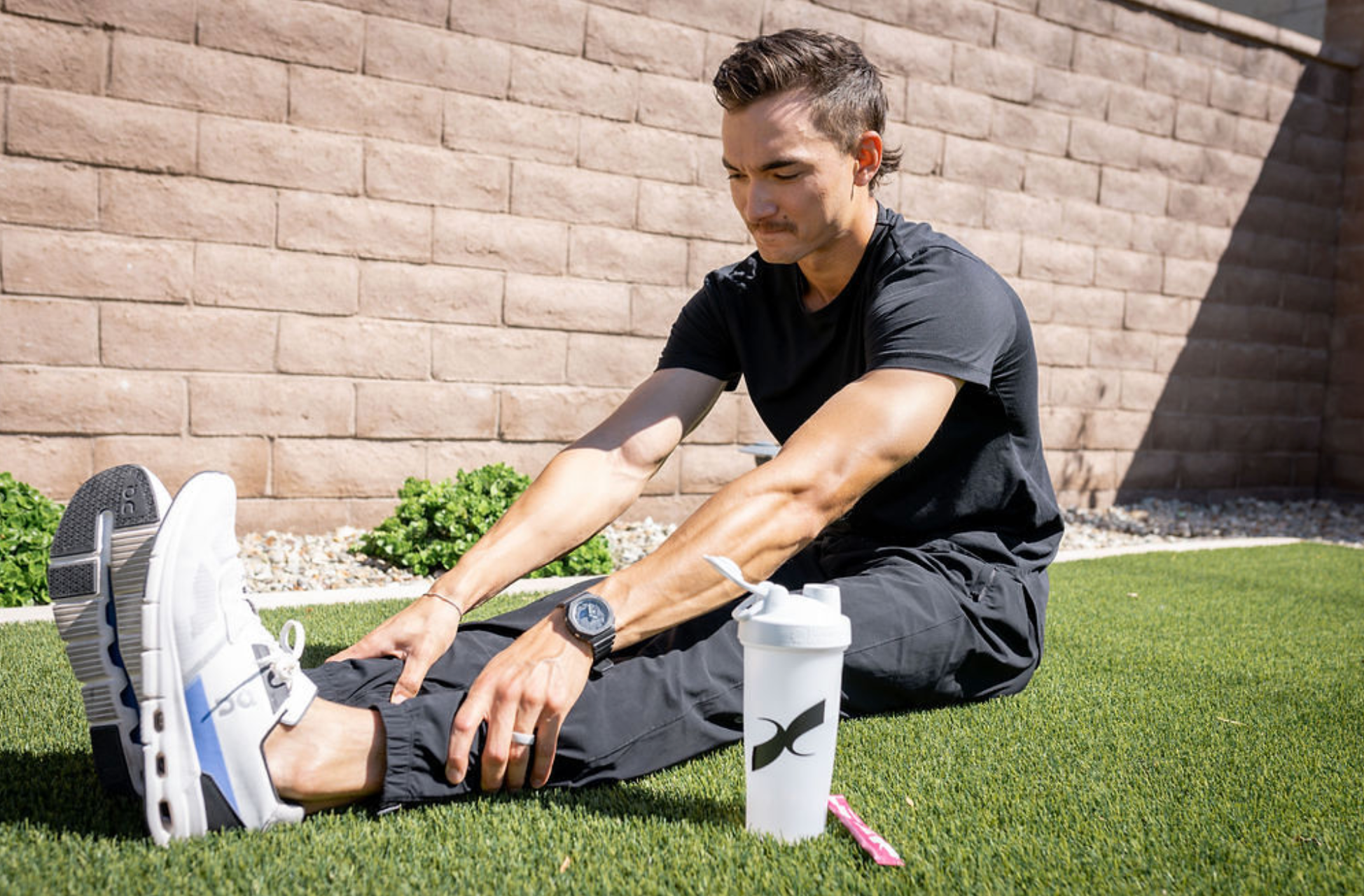For athletes, losing weight while maintaining peak performance is a careful balance. The need to stay agile and strong makes the process different from general weight loss efforts. Understanding how to lose weight effectively as an athlete involves keeping energy and muscle, important for doing well.
When approaching weight loss, athletes should consider the following:
- Energy Levels: It's essential to keep energy levels high to support intense training and competition schedules.
- Muscle Mass: Preserving muscle mass is crucial, as it directly impacts strength and performance.
- Calorie Balance: Find the right balance between calorie intake and expenditure to ensure weight loss without sacrificing performance.
Understanding Weight Loss for Athletes
Athletes face unique challenges when it comes to weight loss. Unlike others, they must make sure their efforts don’t hurt their ability to perform at their best. Here are some important considerations:
- Maintaining Energy Levels: Athletes need to consume enough calories to fuel their workouts while still creating a calorie deficit for weight loss.
- Preserving Muscle Mass: It's important to include strength training in their routine and consume adequate protein to prevent muscle loss.
- Calorie Intake vs. Expenditure: Athletes should monitor their calorie intake carefully and adjust it according to their training intensity and goals.
By understanding these key factors, athletes can approach weight loss in a way that supports their performance and helps them achieve their goals efficiently.
Effective Diet and Hydration Strategies
For athletes aiming to lose weight quickly while maintaining peak performance, a planned approach to diet and hydration is essential. Here are some effective strategies:
- Balanced Diet: Having a balanced diet is important. Focus on consuming lean proteins, whole grains, fruits, and vegetables. These foods provide needed nutrients without extra calories. For more on the benefits of a balanced diet, here is an article for review.
- Hydration: Staying hydrated is key to both performance and weight loss. Drinking water before meals can help manage hunger and reduce calorie intake. Learn more about this approach from Harvard Health.
- Meal Timing: Eating smaller, more frequent meals can help maintain energy levels and prevent overeating.
- Mindful Eating: Pay attention to hunger cues and avoid eating out of boredom or stress.
Best Way to Lose Belly Fat
Belly fat is a common concern for athletes, and focusing on this area needs special methods:
- Core Exercises: Incorporate exercises like planks, Russian twists, and bicycle crunches to strengthen the abdominal muscles.
- Cardio Workouts: Activities such as running, cycling, or swimming can help burn overall body fat, including belly fat.
- Dietary Adjustments: Reduce sugar and refined carbs, which can contribute to belly fat. Focus on high-fiber foods that help you feel full.
- Consistent Routine: Consistency in exercise and diet is crucial for effective belly fat reduction.
How to Lose Weight Without Exercising
While exercise is a great way to lose weight, it's not the only method available. If you're looking to shed pounds without hitting the gym, consider these effective strategies:
- Mindful Eating: Pay attention to what you eat and savor each bite. This can help you recognize when you're full and prevent overeating.
- Portion Control: Use smaller plates and bowls to help manage portion sizes. This simple change can reduce calorie intake.
- Healthy Snacking: Choose snacks like fruits, nuts, or yogurt instead of processed foods.
- Reduce Sugar and Refined Carbs: Cut back on sugary drinks and foods high in refined carbs, which can lead to weight gain.
- Increase Protein Intake: Foods high in protein can help you feel full longer, reducing the likelihood of snacking.
- Stay Hydrated: Drinking water can help control hunger and might even boost metabolism. Learn more about the benefits of drinking water before meals here.
- Consistent Routine: Make small, sustainable changes to your daily routine for long-term success.
Importance of Sleep in Weight Management
Sleep plays a crucial role in weight management, especially for athletes. Here's why getting enough rest is vital:
- Regulates Hunger Hormones: Lack of sleep can disrupt hormones like ghrelin and leptin, which control hunger and fullness, leading to increased appetite.
- Boosts Metabolism: Adequate sleep helps maintain a healthy metabolism, making it easier to burn calories.
- Improves Recovery: Quality sleep is essential for muscle recovery and overall athletic performance.
- Reduces Stress: Sleep helps lower stress levels, which can prevent stress-related weight gain.
For more insights into how sleep affects weight loss, you can read this study on sleep deprivation and its impact on weight management.
Conclusion and Next Steps
In the journey of learning how to lose weight effectively as an athlete, it's crucial to remember the balance between shedding pounds and maintaining peak performance. We've explored the importance of a tailored approach that considers energy levels, muscle mass, and overall health.
- Diet and Hydration: A balanced diet, as supported by Harvard Health, and proper hydration can significantly impact weight loss and performance.
- Belly Fat Reduction: Targeted exercises and dietary tips can specifically help reduce belly fat.
- Non-Exercise Weight Loss: Lifestyle changes and consistent small adjustments can aid in weight loss without relying solely on exercise.
- Sleep's Role: Quality sleep is vital for weight management and recovery, as highlighted by research.
As you embark on your weight loss journey, consider integrating Xendurance's high-quality, science-backed supplements to support endurance, energy, and recovery. Our products are designed to enhance your performance while aligning with your weight loss goals. Visit Xendurance to explore our range of supplements and discover how they can complement your athletic lifestyle. Check out our Extreme Endurance for enhanced performance, Lean+ for weight management, and our Recovery collection to aid in muscle recovery.









Leave a comment
This site is protected by hCaptcha and the hCaptcha Privacy Policy and Terms of Service apply.